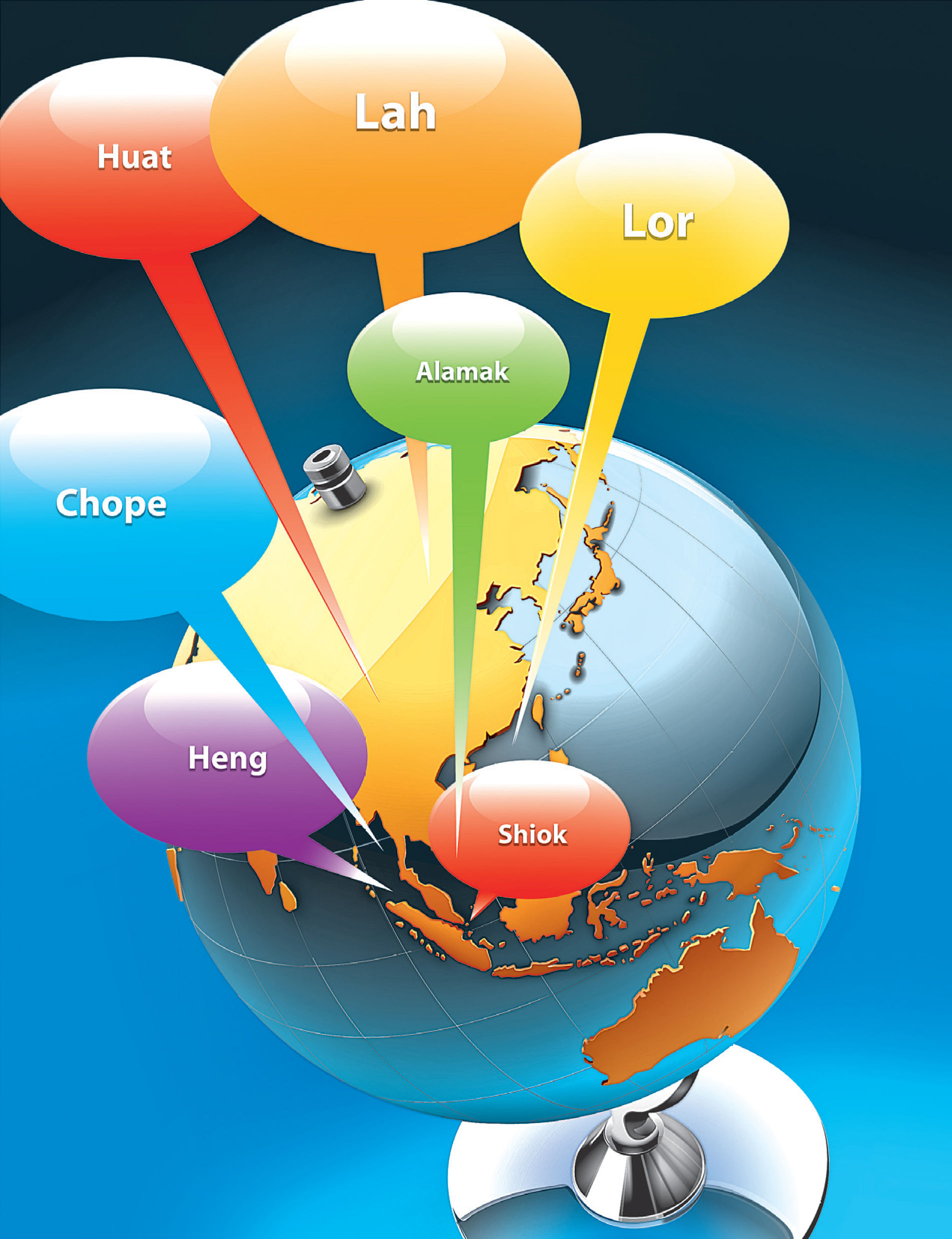I've not seen my sister for nearly four years, which is why I'm looking forward to the next two weeks.
We have planned a family holiday in Edinburgh and London.
She, her husband and two children will be flying in to Heathrow Airport from the United States to meet my mother, H and me. H's daughter from Wales will also be joining us.
We've booked two Airbnb houses with kitchens, so I'm packing some Singapore goodies that we can cook and eat there.
I've bought Prima Taste Singapore Curry mix and will be getting Bengawan Solo pineapple tarts, Ya Kun kaya, Bee Cheng Hiang bak kwa and Spring Home frozen roti prata.

There's nothing like the taste of Singapore to bond two Singaporean sisters, right?
Actually, it's more likely going to be the sound of Singapore - Singlish - that does it.
This is probably going to be the conversation at the airport:
Me: Hey hi, how you?
She: Okay lah.
Me: Wah, haven't seen you for so long!
She: Ya, I know!
Me: The flight, how?
She: Okay lah. Tiring.
Me: Ya, we're tired too. We came at 5.30am. So sian lah, waiting so long for you guys to come out.
She: Sorry lah.
Me: It's okay. Why delay until like that?
She: I left something on the plane.
Me: Aiyah, blur lah you. You guys hungry or not? Want to ta pau back to the Airbnb?
If we are to speak proper English, the conversation would go like this:
Me: Hey hi! How have you been?
She: I've been well.
Me: It's been years since I saw you!
She: I know!
Me: How was the flight?
She: It was all right, but tiring.
Me: Ya, we're tired too. We arrived at 5.30am and it's been exhausting waiting so many hours for you guys to arrive.
She: Sorry about that.
Me: It's all right. What caused the delay?
She: I left something on the plane.
Me: Oh dear, you're such a muddlehead, aren't you? Are you guys hungry? Shall we do a takeaway for dinner back at the Airbnb?
I wouldn't say my sister and I are hardcore Singlish speakers. We're not fans of Singlish because we don't regard it as proper English and believe we should be speaking standard English.
Most times, we make sure our sentences are properly structured, that we use the correct tenses and avoid words that only Singaporeans understand. She has to do so in any case, or people in America won't be able to understand her.
But we do speak Singlish and, when we do, it's like a guilty pleasure, akin to wearing a favourite pair of tatty pyjamas around the house the whole day.
We do it as a half-proud, half-mocking signifier of how Singaporean (and special) we are. It's a secret code which locks the rest of the world out.
More pragmatically, we also use it to save time. A key feature of Singlish is how verbs are dropped and single words loaded with meaning. It is a curt, staccato language suited for the linguistically lazy.
My niece says Singlish is "like a foreign language - I can understand some of it, but not all". Singlish, she adds, is "something you've got to really be a part of the culture to appreciate".
My nephew finds Singlish a hoot and does a good imitation of it. Some years back, when we went ice-skating and H fell down while showing off some moves, my nephew shocked us by shouting "yaya papaya".
H's daughter, too, finds Singlish hilarious and cracks us up whenever she acts out how a Singaporean speaks.
Singlish is not standard English. Native English speakers like my nephew, niece and H's daughter find it incomprehensible and funny, as in silly-funny. (Guess they liak bo kiu, huh?)
Linguists define Singlish as an English creole, or a language that originated as a mixed language. In Singlish's case, we're talking English jumbled with words and syntax from native languages such as Malay, Mandarin, Chinese dialects and Tamil.
Singlish has its own vocabulary (kena/Malay, kiasu/Hokkien, see first/English). It loves particles (lah, leh), but doesn't like verbs (You bad boy). Vowels are shortened (feet becomes fit) and sentence structures borrowed from Mandarin and Chinese dialects (She eat already? He go where?)
The pro-Singlish and anti-Singlish camps have strong views which they have voiced loudly over the years.
Proponents see it as something unique that binds the different cultures and gives Singaporeans an identity. Interestingly, many can switch effortlessly from fluent English to Singlish and I have yet to come across anyone advocating Singlish as a written language.
Opponents - including the Government - say Singlish impedes the learning of standard English, which is the country's working language and which gives Singaporeans a competitive advantage. Already, some say, the level of standard English has dropped and Singlish will drag it down further.
They point out how large swathes of Singaporeans can speak neither standard English nor standard mother tongue. They are monolingual in Singlish, which makes you worry about how they compete in the working world.
It is unlikely the two camps will agree, or that Singlish will disappear and die.
What we should aim for is a higher standard of English all around, so more people know when and how to switch between that and Singlish.
It has to start in schools, where Singlish remains prevalent and, in fact, passes off as English. Teachers speak it (How can you answer like that?) and students speak it (Teacher, can give model answer or not). At home, parents speak it too (Boy, why your results like that?)
More must be done to improve the teaching of English. I don't mean students should be taught fanciful words or an accent. Rather, basic things like how to speak in proper sentences and how to get the subject-verb agreement right and the idioms correct. The differences between English and Singlish should be made clear.
Like it or not, and speak it or not, Singlish will be around.
We just have to make it work better for us and try not to quarrel about it, because it's really jialat when Singaporeans fight over old issues.
•Follow Sumiko Tan on Twitter @STsumikotan

